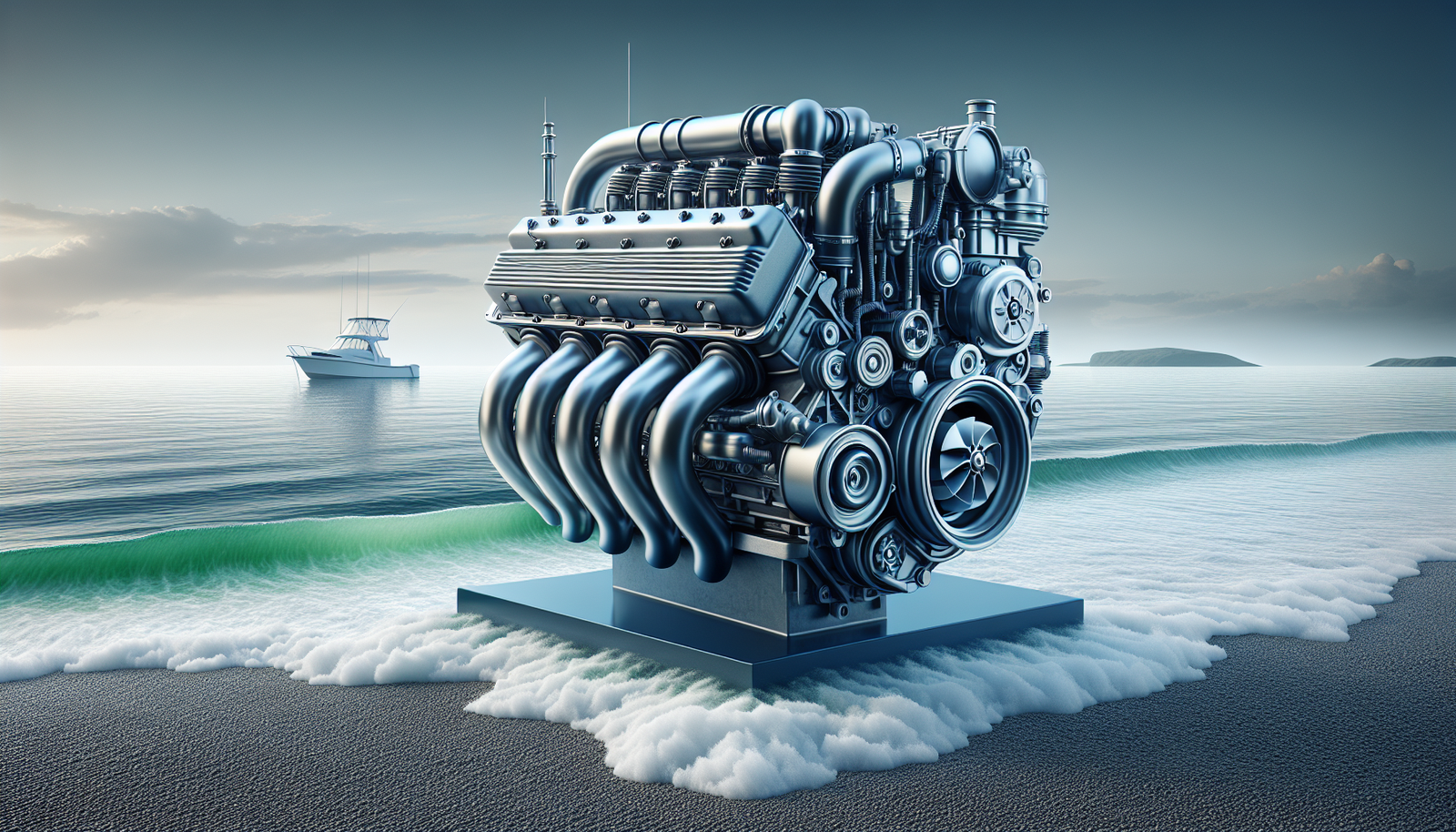If you’re a boat owner, it’s high time you considered the environmental impact, particularly the noise pollution that your boat engine contributes to. “Tips for Reducing Noise Pollution from Boat Engines” is an invaluable resource tailor-made for you. It’s teeming with practical, straightforward advice to help you limit the unwanted noise generated by your boat engine, which if left unchecked, could disrupt aquatic ecosystems. Learn how to become a more ecological boater and protect our beautiful water bodies from the effects of noise pollution while enjoying your nautical adventures.
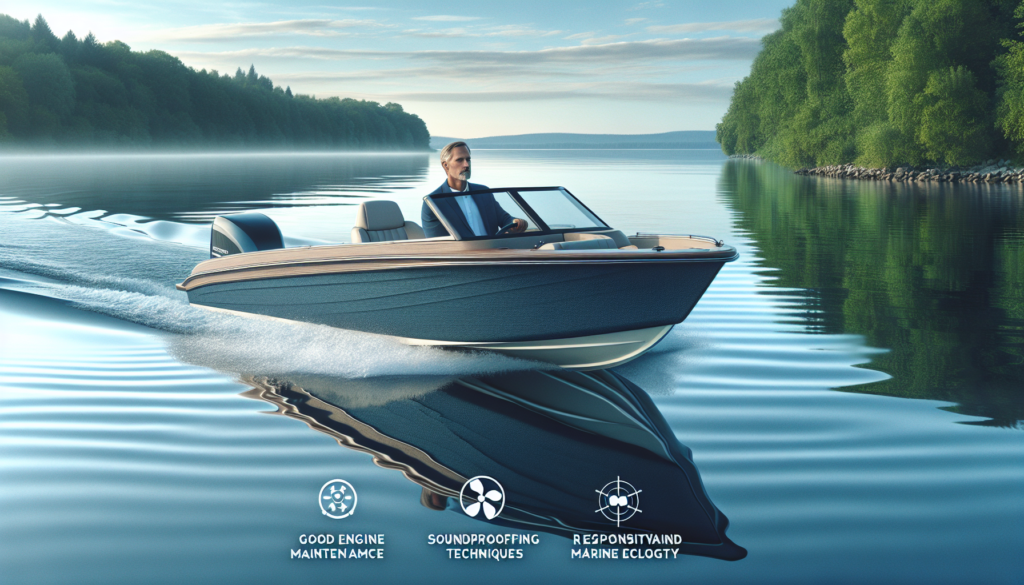
Understanding Noise Pollution
Before we dive deep into the world of boating and engines, let’s first answer the question – what exactly is noise pollution? Simply put, noise pollution is any excessive and displeasing sound in our environment that is either harmful or disruptive to both human and animal life. It’s a kind of environmental pollution, similar to air or water pollution, but one that often gets ignored or overlooked.
Definition of Noise Pollution
Technically speaking, noise pollution, also known as environmental noise or sound pollution, originates from a multitude of external sources, including industries, vehicles, and even recreational activities like music festivals, fireworks, and yes, you guessed it right, boating. Any noise that inherently degrades the quality of your environment or leads to negative effects on the health of living beings can qualify as noise pollution.
Effects of Noise Pollution on Marine Life
You might be surprised to learn that noise pollution can greatly impact marine life. Many marine animals rely on sound for communication, navigation, and hunting. Unnatural noises from engines or propellers of boats can interfere with these essential activities and lead to behavioural changes, stress, disorientation, hearing damage, or even death in extreme cases. Particularly, sea creatures like whales, dolphins, and seals seem to be more vulnerable to noise pollution.
How Boat Engines Contribute to Noise Pollution
Boat engines are one of the major contributors to noise pollution in aquatic ecosystems. The powerful engines that keep your boat moving produce a considerable amount of sound that travels underwater, entering the world of marine animals and disturbing their natural harmony. Now does it mean we should stop boating altogether? Absolutely not! But it does mean we need to be much more mindful of how our actions are affecting others and the environment we share.
Types of Boat Engines and Their Noise Levels
Just like cars, not all boat engines are created equal. The amount of noise a boat engine produces can greatly vary based on its type and functionality.
Inboard Engine and Noise Level
Inboard engines usually sit inside the hull of the boat in a compartment. Although they are typically bigger and more powerful than outboard engines, they are generally quieter as the hull of the boat, along with the water surrounding it, provides a natural sound buffer.
Outboard Engine and Noise Level
Outboard engines are mounted outside the boat, usually on the stern. They are lightweight, easy to maintain, but tend to be noisier since there is less material to decrease the noise before it hits the open air and water.
Stern-drive Engine and Noise Level
Also known as inboard/outboard engines, stern-drive engines combine the power and performance of inboards with the convenience of outboards. Due to leverage of both designs, these engines are quieter than outboard engines but louder than most inboard engines.
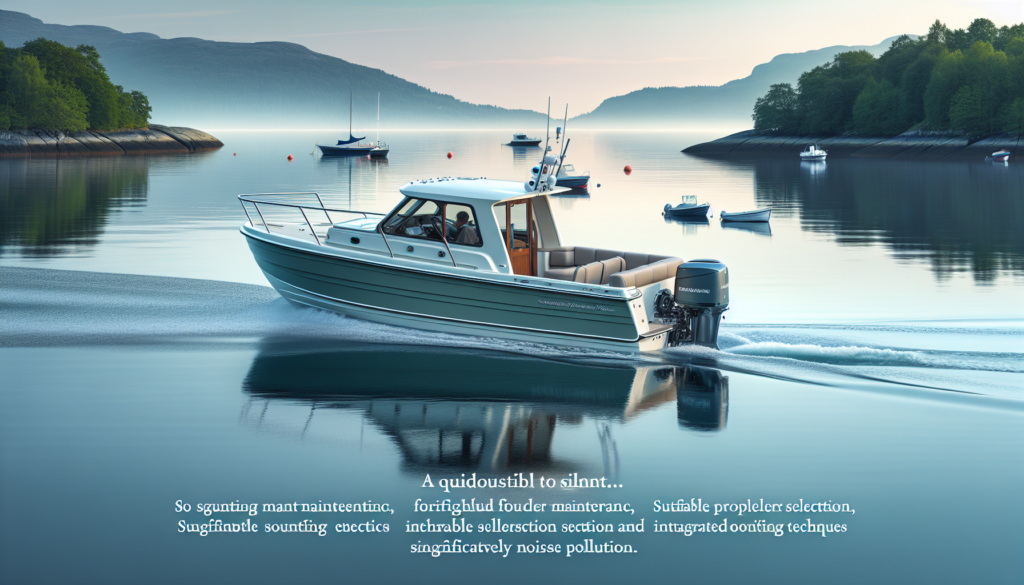
The Role of Legislation in Controlling Noise Pollution From Boats
Legislation plays a crucial role in controlling noise pollution from boats. They serve as tools to regulate the maximum permissible sound limits and enforce compliance measures.
Existing Regulations on Noise Emissions
In many countries, there are strict regulations specifying the maximum permissible sound levels for different types of boats. For example, in the United States, the Federal Noise Control Act requires boats to meet certain noise level limitations to be legally operable.
Success and Limitations of Current Regulations
While these regulations have proven successful in reasonably controlling noise pollution, there remain certain limitations. Enforcement of these regulations is often ambiguous and challenging, with boat operators sometimes unaware of the law or culpable of violating restrictions unknowingly.
Future Legislation Projections
Future legislation is projected to address these issues, increasing the strictness of noise limit requirements and ensuring more stringent enforcement. The hope is to ensure a more noise-free experience for both those on water and the creatures that call it home.
Installing High-Quality Mufflers
One of the most effective ways of reducing noise from your boat engine is by installing a high-quality muffler.
Function of Mufflers
The job of the muffler is to reduce the noise produced by the exhaust gases leaving the engine. It works by utilizing a series of chambers and tubes that create pressure waves that cancel out or reduce specific sound frequencies.
Choosing the Right Muffler for Your Boat
Choosing the right muffler for your boat is critical. Factors such as the size and type of your boat, type of engine, and your common boating activities should guide your decision.
Potential Noise Reduction with Muffler Installation
A proper muffler can significantly diminish the noise produced by your boat engine. Some studies suggest that high-quality mufflers can reduce engine noise by up to 50%.
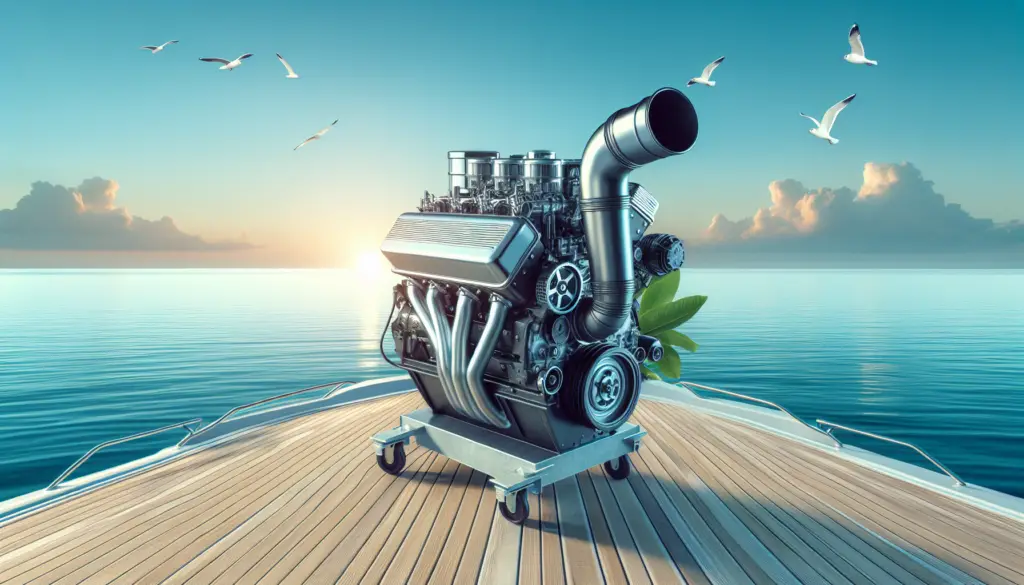
Improving and Maintaining Engine Condition
Maintaining a healthy engine is yet another effective way of cutting down on noise pollution from your boat.
Regular Engine Maintenance
Regular engine maintenance is key to ensuring its optimal performance. This includes timely oil changes, cleaning, and replacement of parts when needed which helps reduce engine noise.
Noise Reduction Through Engine Upgrades
Depending on the age and condition of your engine, certain upgrades might reduce engine noise. For instance, replacing an older engine with a newer, more efficient model can lead to substantial noise reduction.
Recognising Engine Problems Early
Recognising and addressing engine problems early is critical in preventing noise pollution. An unusually noisy engine can often indicate a problem that needs immediate attention.
Limiting Boating Activities in Noise-Sensitive Areas
While boating is undeniably a pleasure, it’s crucial to respect and protect the tranquility of noise-sensitive areas.
Identifying Noise-Sensitive Areas
Noise-sensitive areas are zones that are more susceptible to the harmful effects of noise pollution. These can include certain parts of the waters that are inhabited by noise-sensitive marine species.
Community Guidelines for Boating in These Areas
Some communities have guidelines for boating in noise-sensitive areas. These might include speed limitations, times when boating is permitted, or restrictions on the use of certain types of engines.
Leveraging Technology to Avoid Noise-Sensitive Areas
With modern technology, we can now easily identify noise-sensitive areas and avoid intruding into these zones. There are apps and GPS systems available that can guide you along your journey, ensuring that you maintain a respectful distance from these delicate ecosystems.
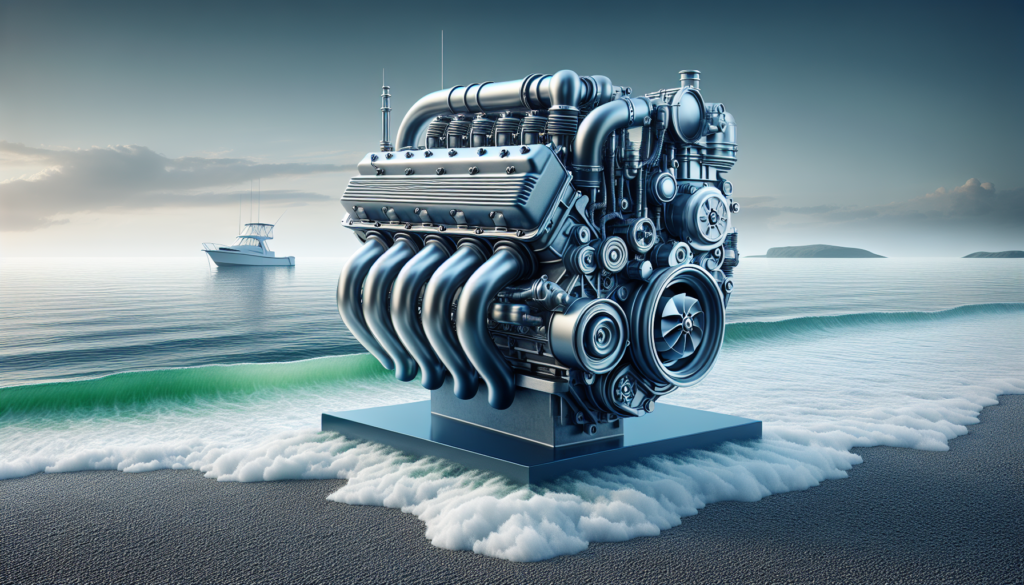
Using Quieter Propellers
The type of propeller you use on your boat can substantially impact the noise it produces.
Noise Characteristics of Different Propellers
Different propellers have different noise characteristics. For instance, larger, slower-turning propellers generally produce less noise than small, fast-spinning ones.
How Propellers Contribute to Boat Noise
Aside from the engine noise, propellers contribute to the overall noise of a boat. This happens when fast-spinning propellers churn up water creating noise and often causing a phenomena known as “cavitation” that can be particularly loud.
Choosing and Maintaining Quiet Propellers
Choosing a propeller that is designed for minimal noise and vibrations can greatly reduce boat noise. Moreover, keeping your propellers in tip-top shape by regularly checking for wear and tear and ensuring they are balanced and aligned can also bring down the noise levels substantially.
Use of Soundproofing Materials on Boats
In addition to all the other ways of reducing boat noise, using soundproofing materials on your boat can also contribute to noise minimization.
Soundproofing Materials and their Effectiveness
There are various soundproofing materials available, such as sound-absorbing foams and vibration-damping materials, that are specifically designed for marine use. They can be applied to engine compartments and other areas where noise is produced, and can significantly cut down on the noise.
Installation and Maintenance of Soundproofing Materials
Proper installation and maintenance of these materials are crucial for their effectiveness. If done properly, they can significantly dampen the noise produced by your boat’s engine and other mechanical components.
Cost-Benefit Analysis of Soundproofing for Boats
Soundproofing materials for boats do require an investment, but the benefits – reducing noise pollution, enhancing your boating experience, and contributing to the wellbeing of marine life – can definitely make it a worthwhile investment.
Effective Driving Techniques to Reduce Noise
Believe it or not, your driving technique can also have a significant impact on the noise your boat generates.
Impact of Driving Technique on Engine Noise
Rapid acceleration, high-speed operation, and turning at high speed can all create excessive noise. By being mindful about the way you drive, you can consciously reduce the amount of noise your boat produces.
Learning and Implementing Quieter Driving Techniques
Learning to drive your boat more quietly can be as simple as easing off the throttle a little or planning your turns in advance. Implementing these techniques can not only help mitigate noise pollution but also improve fuel efficiency and extend the lifespan of your boat engine.
Driving at Maximum Efficiency to Reduce Noise
Running your boat at maximum efficiency is the quietest and the most economical way to drive. This usually means running at a steady, moderate speed that reduces both engine noise and fuel consumption.
Community Involvement and Awareness
At the end of the day, reducing noise pollution from boats is not just an individual task but a community effort.
The Importance of Education and Community Involvement
Education plays a critical role in raising awareness about the impact of noise pollution on marine life and the steps we can take to mitigate it. Community involvement is equally crucial in enforcing noise regulations and promoting quieter boating practices.
Successful Noise Reduction Campaigns
There have been numerous successful campaigns around the world aimed at reducing noise pollution from boats. These campaigns have helped raise awareness and bring down noise levels in numerous water bodies.
How Individuals Can Make a Difference
Finally, you as an individual can make a considerable difference. By maintaining your boat, acknowledging and respecting noise limits, choosing quieter times and places to boat, and educating others, you can play a significant role in reducing noise pollution, protecting your surroundings, and contributing to a more sustainable boating culture.

